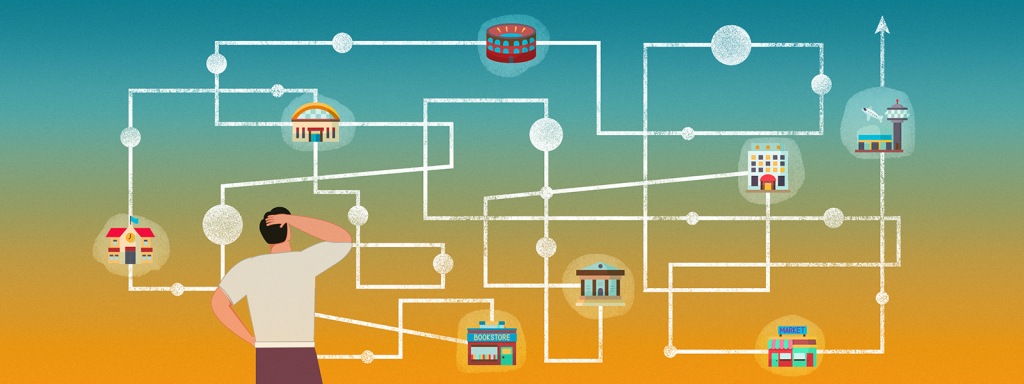
“While it’s easy to show that people differ in navigational ability, it has proved much harder for scientists to explain why. There’s new excitement brewing in the navigation research world, though. By leveraging technologies such as virtual reality and GPS tracking, scientists have been able to watch hundreds, sometimes even millions, of people trying to find their way through complex spaces, and to measure how well they do. Though there’s still much to learn, the research suggests that to some extent, navigation skills are shaped by upbringing.” SOURCE: Knowable Magazine
How do we know where we are, and why can some people find their way in the world, better than others? I knew my mom would always struggle to find her way around and when I was 11, we moved to San Diego. I took it upon myself to learn the freeway system, major roads, and key visible landmarks. I would help my mom drive around will be trusty Thomas Guide set of maps for San Diego County. Once she was going off alone and I drew her a simplified map with directions on how to get to Fashion Valley, but she also insisted that I make a second map that would show her how to get back (I did try to explain one map would suffice, but it was easier to make the second map).
I’ve often wondered why my mom and I are so different in this regard; our psychology, our interests, the information we value, the skills we believe are useful and within our grasps are quite distinct. We represent the extremes in our family and the linked article above explores how geographers and psychologists think about the differences in navigational abilities. GPS technologies serve both as great tools and crutches that limit some to expand their spatial skill set.



Leave a comment